The collaborating IISH slavery history projects make digitized colonial archives accessible, collect historical data and host a collaborative research platform in our effort to advance the study of histories of slavery and slave trade in Asia. Our Joint Projects’ Portal gives access to a transcription viewer for the text recognized colonial archives and to a collaborative data entry environment for slave voyages and other domains.
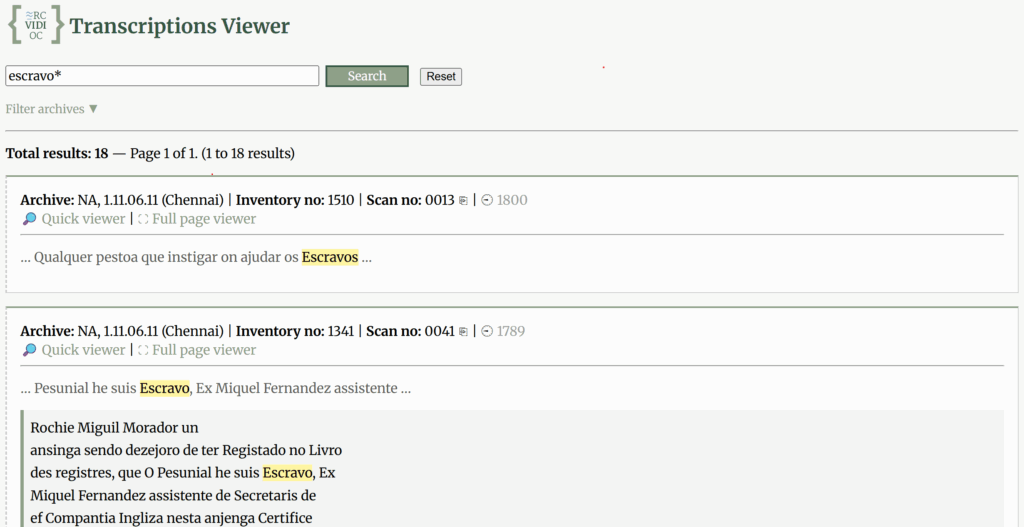
Fifteen colonial archives
2.5 mln scans transcriptions
Covering Asia and Africa
Search and view
Collective data entry
Text recognition of colonial archives
Transcriptions currently cover fourteen digitized collections from Dutch colonial archives, totalling about one million scans. Expansion to the fifteenth archival collection is soon to be expected – leading to a total of 2.5 million scans. The collections consist mainly of ‘local’ colonial archives and colonial family archives that report on different parts of the Indian Ocean, Indonesian Archipelago and East Asian Seas. We strive to include more transcriptions of Dutch and other European digitized colonial archives in the future.
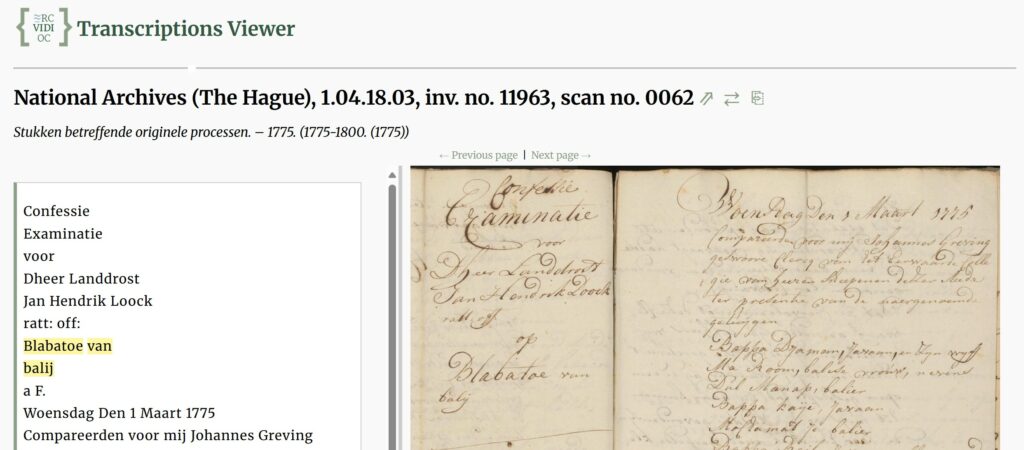
The transcriptions are produced by the collaborating research projects at the IISH using Loghi and can be searched and explored in the transcription viewer of the projects. The transcriptions are produced by Bethany Warner in collaboration with GLOBALISE, the Dutch Science Foundation (NWO) large digital infrastructure project of the Huygens Institute, International Institute of Social History and its partners. GLOBALISE creates a digital infrastructure for the ‘Copied Letter’ series (Overgekomen Brieven en Papieren) in the Dutch East India Company archives. The transcriptions of circa five million scans of this OBP series are searchable in a separate transcriptions viewer of the GLOBALISE project.
Data environment
The portal provides a collaborative data entry environment for research on the history of slavery. This includes the TIDES environment that allows the contribution of data on slave trade voyages to the Exploring Slave Trade in Asia project. The scope of the collaborative data environment is expanded to other data domains, such as (enslaved) persons, revolts, labelling, and more.
Slave trade voyages data entry environment for Exploring Slave Trade in Asia
Search and browse existing data
Use and export your own data
Crediting for data contributions
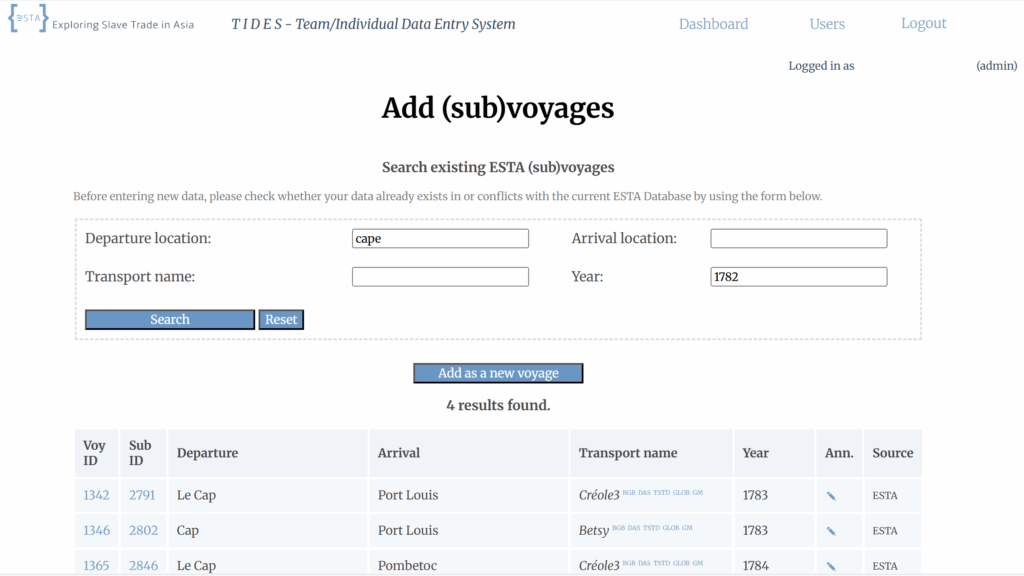
As part of the shared data efforts of the collaborating research projects, our team members have contributed to the development of an extension of the Persons in Context (PiCo) data model for enslaved individuals together with colleagues of GLOBALISE and the IISH Data department.
Data and resources
The wealth of data available for studying the histories of slavery, colonialism and (non-European) societies in Asia and the Atlantic is growing rapidly. We are happy to provide a few suggestions to datasets, viewers and projects connected to the collaborating research projects:
The Early Modern Dutch Colonial Court Records database, providing a searchable database of defendants, accusations, and other information on court cases of the colonial courts of Batavia (Jakarta), Colombo, Cochin (Kochi), Kaapstad (Capetown), Elmina, Paramaribo and Curaçao.
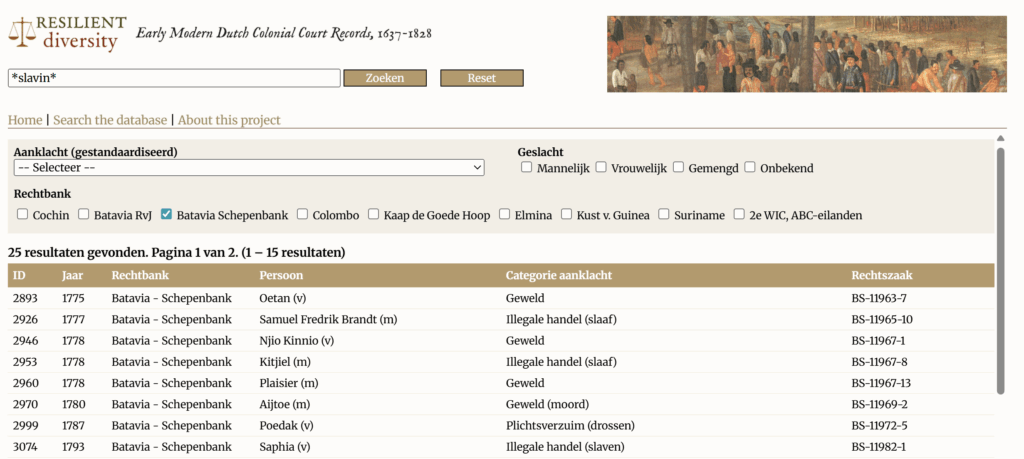
The Exploring Slave Trade in Asia Database, providing data on slave trade patterns in the wider Indian Ocean, Indonesian Archipelago and East Asian seas. Currently containing 4100+ voyages and 7700+ subvoyages with references to at the very least around 325.000 enslaved individuals coercively transported.
→ Database Viewer at ExploringSlaveTradeInAsia.com
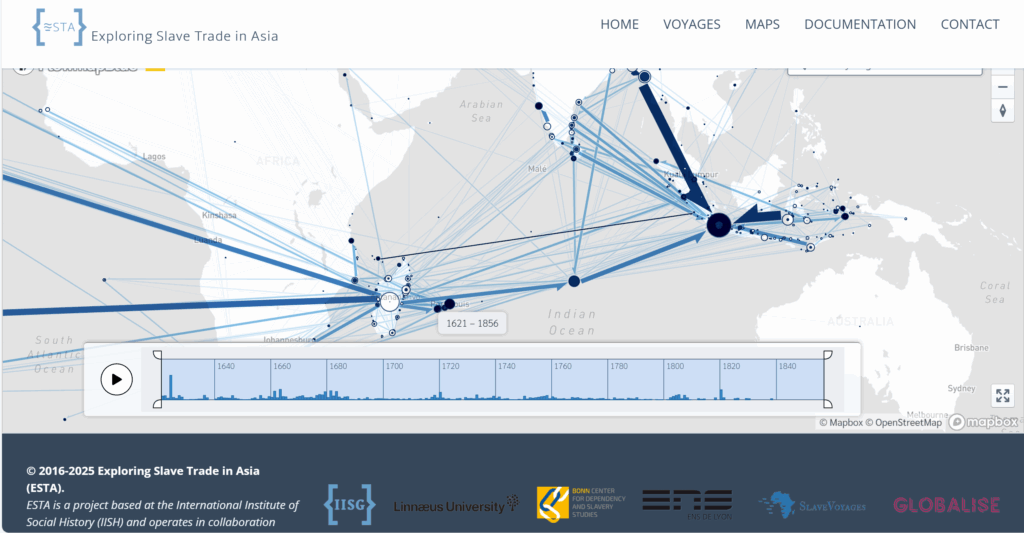
The Joint Projects’ Portal of the Slavery Projects at the International Institute of Social History currently provides access to 2.5 million scans of fifteen local VOC archives from different parts of Asia (especially India, Sri Lanka, Java, Japan). More archives are going to be added in the near future.

The GLOBALISE project of the Huygens Institute, International Institute of Social History and its partners provides various resources, including thesauri, data and NLP methodologies. Its transcriptions viewer provides searchable transcriptions for the 5 million scans of the ‘Copied Letters’ series of the VOC archive.
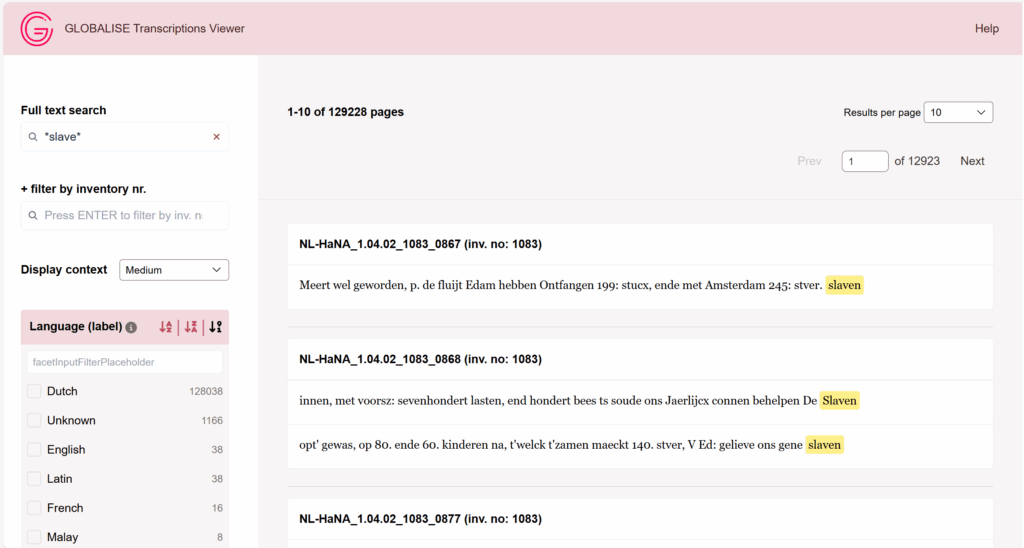
Team
The Joint Projects’ Portal, Transcription Viewer and TIDES environment are created and maintained by ESTA-coordinator Pascal Konings. The transcriptions in the Joint Projects’ Portal are created by our junior researcher Bethany Warner, applying the GLOBALISE Loghi model to a wide range of VOC archives, and additionally training models for Portuguese, Spanish and French colonial archives.
More will follow – stay up to date via our events and blogs.